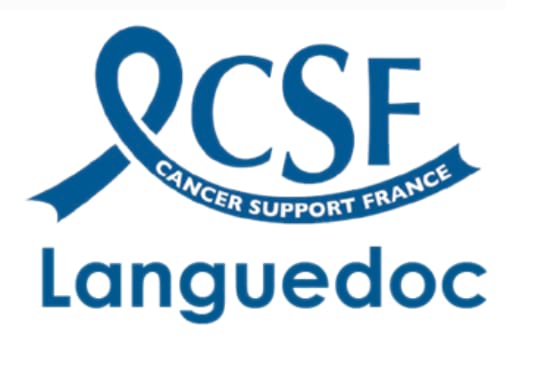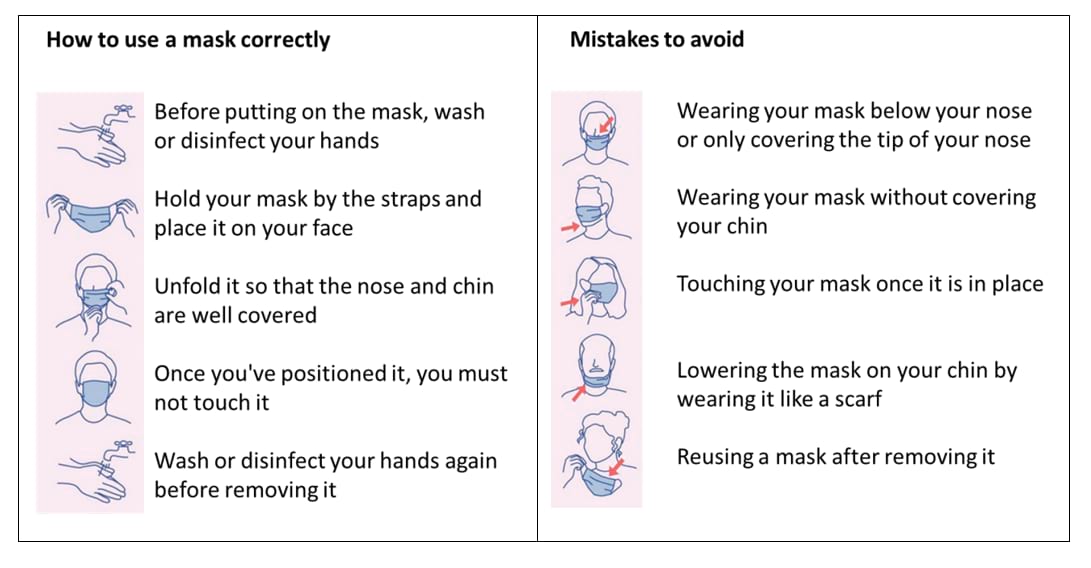Covid 19 Update with CSF Languedoc
To help keep English-speaking residents and visitors to the region informed, CSF Languedoc have been sharing bulletins of extremely useful information.
Taken from verified government sources, this is a fountain of knowledge during these uncertain times – big thank you to CSF Languedoc!
Read their previous bulletin here and here. You can also read our breakdown of Macron’s latest announcements here.

Please note that the situation in France is subject to less frequent change. We will only issue Bulletins whenever there is new information of significance / substantial change.
We hope you find the content of this Bulletin useful and we wish you a safe and enjoyable summer.
Managing Covid-19 risks to ourselves and others
The French Government has lifted most confinement restrictions. Quarantine requirements between the UK and France no longer apply, however travel to other countries is advised against where non-essential. Bans are still in place for travel from some countries, notably the US.
The virus remains in circulation, with 307 clusters identified since 9 May. It has been easier to manage these clusters with greater public awareness of symptoms and appropriate actions, increased ability to trace contacts, and a much lower number of cases than at the height of the epidemic. The government remains concerned about the possibility of a second wave.
Regular government announcements and information briefings continue to ask people to be sensitive to the risks of spreading Covid-19 and to maintain preventative behaviours – particularly if in, or likely to be in, contact with, a higher risk group.
At Cancer Support France-Languedoc, our purpose is to support people touched by cancer, meaning we have high numbers of ‘at high risk’ contacts amongst our clients, and our volunteers. All of our Active Listeners have been advised to identify their own personal risk levels and boundaries, and to talk these issues through with their clients, helping clients to do the same.
This way we can be aware of and manage risk, and maintain appropriate contact to deliver support. It is worth noting that many of our Active Listeners have moved to most client support being by phone or computer, with face to face contact being mainly for hospital support (where hospitals allow this – not all do), or outdoors, where risks are lower. We always seek to maintain good preventative behaviours.
The local Health Authority (Agence régionale de santé [ARS] Occitanie) has issued extra warnings for the holiday season, recognising that 12 million tourists are expected in the region over the summer holiday period. With more borders being open, and quarantine no longer being applied for visitors from most countries, they are promoting greater adherence to good preventative behaviours including:
- maintain social distance
- wash your hands for at least 20 seconds a time, with soap, at least 4-6 times a day as well as before and after most daily activities
- avoid touching your face unless your hands have just been washed as above
- wear a mask (following good practice) for indoor contact with people outside your own household and make sure they are wearing theirs to protect you *see guidance below
- deal effectively with food and food packaging after shopping (disposing of packaging, washing items, and hand washing)
- prepare food using good hygiene principles (both hand washing and washing of food)
- air your home (at least for 10 minutes every morning and evening) and maintaining the hygiene of any ventilation system in use
- disinfection of regularly handled surfaces, such as door handles, taps, toilet flushes etc (hot water deactivates the disinfecting property of bleach, so only cold water should be used to dilute any bleach used for these purposes) and phones/computers etc (using 70% alcohol wipes)
- wash bedding, towels and tea towels at 60°C, with all other items at 40°C
- regular cleaning of bathroom areas
- regular disposal of rubbish and recycling
*Wearing a mask
On 14 July 2020, President Macron announced that wearing face masks in enclosed public spaces would be law from 1 August 2020.
On 15 July 2020, Prime Minister Castex brought this forward to Monday 20 July and now hefty fines are in place for those who do not comply (135€ first offence, climbing to a whopping 3750€ or a 6 month jail sentence for repeat offenders!).
If used improperly, wearing a mask can be counterproductive.

Before handling the mask, wash your hands with soap and water or disinfect them with a hydro-alcoholic gel.
If you have early Covid-19 signs, which are:
- cough
- fever
… stay at home and self-isolate. Phone your GP to discuss your symptoms/how you are feeling. (Do not go to visit your doctor with symptoms). If it is out-of-hours, you can call an out-of-hours service, either as directed by your GP, or using SOS Médecins, Tel: 3624 (note, this costs your standard call rate + 15c p minute).
- If you are unsure of the seriousness of your symptoms, check with your doctor.
- If you develop difficulty breathing, phone the emergency health response/ambulance service on 15 or 114 (for anyone with hearing difficulties).
Where a GP thinks a test is appropriate, they will provide a prescription and further information. Also, it is possible to pay for a test and have it without a prescription.
Brexit preparations / applications for residency permit (Carte/Titre de Sejour)
From 1 July 2021, anyone British, who does not also have European nationality, and whose main residence is in France (please note restrictions on stay for non-permanent residents – no more than 90 in 180 days), will be obliged to have a residency permit (Carte/Titre de Sejour).
The French government had planned to have an online application process for this purpose available from July 2020, however this is now delayed until October 2020, providing a shorter time period for applications to be made.
Government information in English about the rights of British people living in France can be found on the following websites:
https://brexit.gouv.fr/sites/brexit/accueil/vous-etes-britannique-en/droit-au-sejour-en.html
https://www.gov.uk/guidance/living-in-france
https://www.gov.uk/world/france
Citizens’ rights groups are also sharing information about Brexit and its consequences, including the need to apply for a residency permit and guidance on how to do so (when available).
Two recommended groups can be found on the following links:
https://www.remaininfrance.fr/
https://www.francerights.org/your-rights.html
Guidance about the application system is not yet available and this is something we will aim to provide information about in the future.
StopCovid app
The French StopCovid app has been devised to allow tracing where people using the app come into contact, and one or other person is identified as having Covid-19 within a two-week period of that contact.
The app was delayed until agreed by the Commission nationale de l’informatique et des libertés (CNIL) [the National Commission for Data Protection].
The CNIL was particularly pleased that some of its recommendations were followed on the anonymisation of contacts, the duration of data backup (14 days), the fact that it is the Ministry of Health who is responsible for information from the app, and that there is freedom of choice about whether or not to install StopCovid on your smartphone, without any negative legal consequence (on access to public transport for example).
The Privacy Note confirms:
- It doesn’t track location, only stores details of phones running the app that the user has been near to for15 minutes or more.
- If someone with the app tests positive for Covid-19, they will get a code to enter and that will activate an alert to the devices registered as being nearby for 15 minutes or more over the last 14 days. It is then up to the recipients of the alert to take action. All of this is done anonymously.
The app can be used on both iPhones (App Store) and Android phones (Google Play).
CSF-Languedoc members have tested it on both Android and iPhones with French and UK mobiles. The app is easy to install and provides an interface in English if this is the language you use on the phone.
It uses Bluetooth technology and there have been some reports that it can use a lot of battery, though this varies. Some people choose to deactivate it when at home and reactivate it on leaving home. The issue here is that if someone forgets to reactivate it, it will not offer the service for which it is designed.
Scams and fraud
Scammers and fraudsters continue to take advantage of the changes brought by Covid-19. Recently there have been a spate of Scam phone calls in the name of Orange.
The golden rules to stay safe are:
- do not respond / reply to any emails, texts or phone calls that are unusual
- never give out your personal details or PINs, passwords etc.
Cancer Support France-Languedoc (CSF-L), Covid-19 response
CSF-L continues to support Anglophones touched by cancer in the Herault and Aveyron, as well as extending support to people touched by Covid-19 during the crisis. In line with guidance, this is done at distance. Our Helpline can be reached on 04 67 44 87 06. (This is a voicemail service and we aim to return calls within 24 hours of a message being left).
If there is information you would like to share with others, please contact us using our email address: feedback.csflanguedoc@gmail.com
We hope you stay safe and well.
CSF-Languedoc

